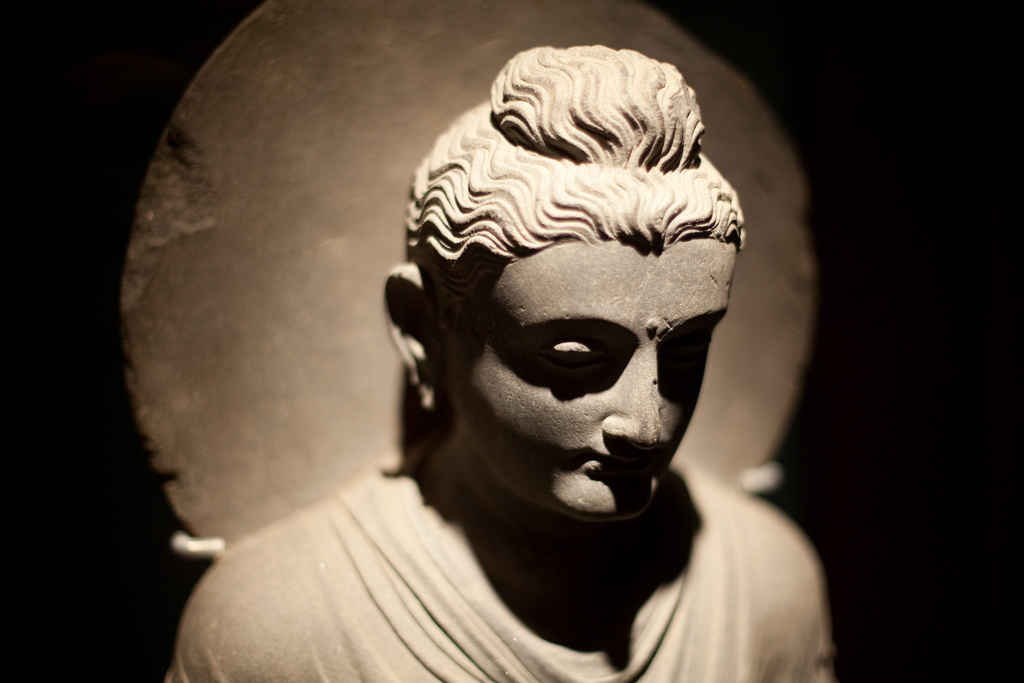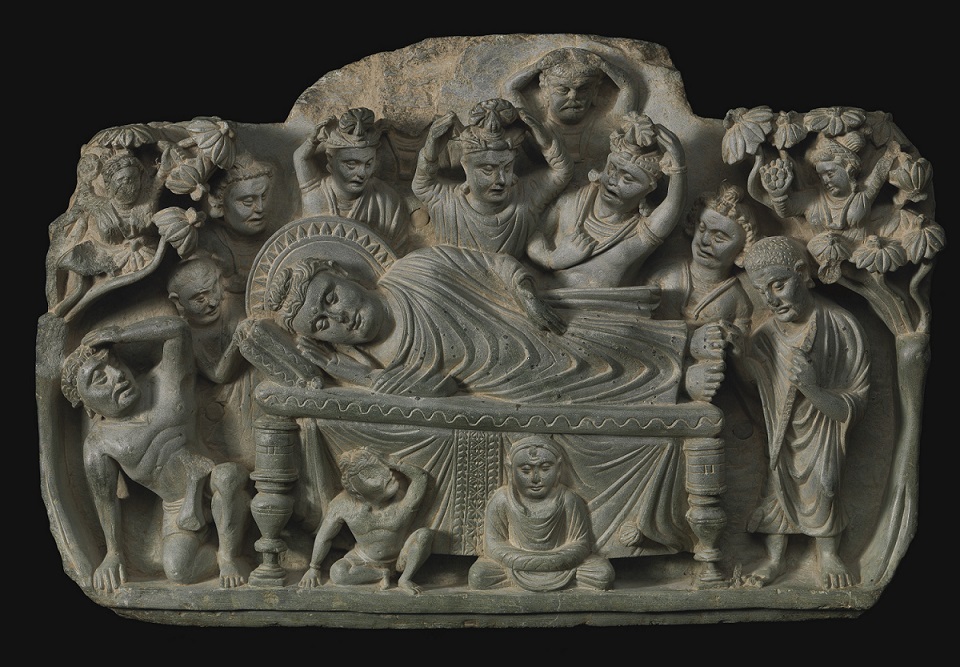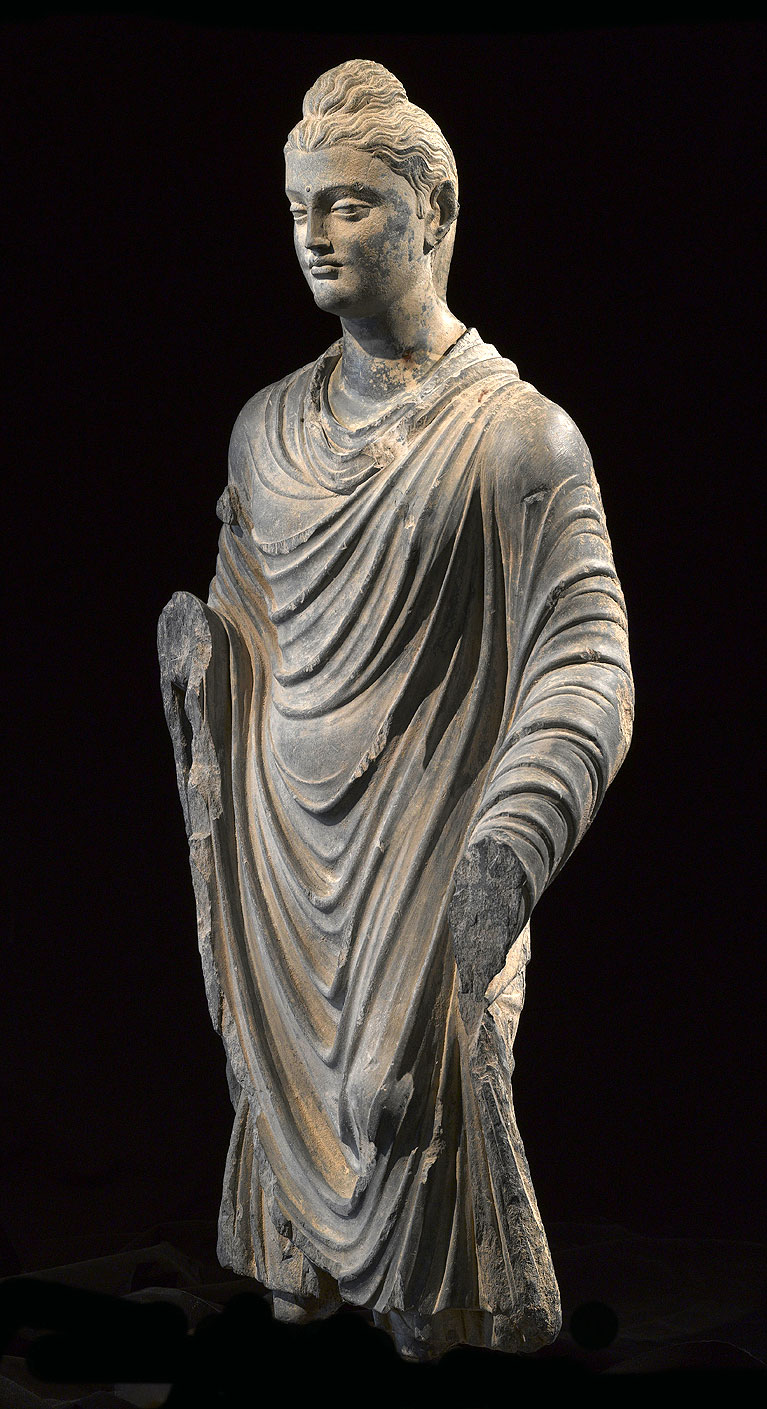Early Years
Siddhartha Gautama was born into a royal family in Lumbini Garden in what is now Nepal over 2,400 years ago. Tragedy struck him seven days after his birth with the death of his mother, Queen Maya. During this time, holy seers prophesied that he would some day either become a world conqueror or a great religious teacher who would liberate the world from suffering. Hearing this prediction, his father, King Suddhodana, schemed to keep the young Siddhartha from becoming a holy man by providing him a sheltered and luxurious lifestyle protected from suffering. In his twenties, he would eventually marry Yasodhara and later they had a son, Rahula. Amidst this opulent and materialistic lifestyle, he continuously felt something was missing from his life and found himself called to a higher mission to seek a religious path that would overcome samsara, the endless suffering cycle of birth and death, for his family, his fellow subjects, and the world. At the age of 28, he finally renounced his royal position to become a wandering seeker.
The Seeker
For 7 years, he was a wandering seeker. Studying and practicing under the most erudite philosophers and the most spiritually adept teachers of his time, he eventually mastered and then rejected each of their teachings as being ineffectual in transcending suffering. It was through his discovery of the Middle Way, which rejects any form of asceticism and sensual indulgence that became the turning point of his journey. Soon after, one fateful night sitting under a large pipal tree in Bodh Gaya, he pledged to himself to attain supreme enlightenment and fell into a deep meditation. By daybreak, upon observing the morning star, he realized the dharma (the truth of reality as it is) within the embrace of boundless awareness and compassion. At the moment of this supreme awakening, he discovered the Four Noble Truths, the truth of suffering, its cause, the path to go beyond suffering, and the transcendence of suffering – nirvana. The enlightenment experience transformed Siddhartha into the Buddha, which means “The Awakened One.” The Garland Sutra recorded the words of the Buddha at the time of enlightenment. “At the moment of awakening, the Buddha exclaimed, ‘Wonder of wonders, all living beings are truly enlightened and shine with wisdom and virtue. But because their minds have become deluded and turned inward to the self-centered ego, they fail to understand this.’
The Mission
For the next 45 years the Buddha established an expansive and influential ministry whose sole purpose was to create a volunteer enlightenment society in which self-actualization based on love, compassion, and understanding would be the driving principle for its members. He called his revolutionary society, the Sangha; it consisted of all socio-economic backgrounds and never discriminated anyone based on gender, class, caste or race. All were invited to participate in creating a new world of insight, prosperity, and peace. 
The Teachings
During those years, he taught the cultivation of the mind, the practice of ethical living, and wisdom and compassion. His philosophy of life and practice was geared to allow his followers to flourish as human beings through the cultivation of ethics, discipline, and understanding. He said, “Consider others as yourself,” and “Peace comes from within. Do not seek it without.” According to the Buddha, the enlightenment experience equal to his own was available to anyone, to monastics as well as to laypeople. As a result of his openness and compassion, an unyielding belief in education, and his skillful organizational talents, thousands of people joined his innovative community. In time, he would return to his former kingdom where he reconciled with his father, King Suddhodana, while his wife, son, and various members of his extended family would join the Sangha. Several family members eventually would shape the future of the sangha by becoming influential teachers; his aunt and wife would establish the first order of women monastics.
Parinirvana
At the age of 80, the Buddha passed on into parinirvana; the cause of his demise was probably due to complications of mesenteric infarction. Surrounded by many beloved monastics and laypeople, his departing words were, “be a lamp unto yourselves, look for no other refuge. Let the dharma be your map and your refuge … All things are impermanent, work out your own salvation with diligence.”
